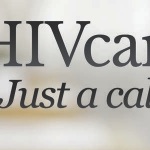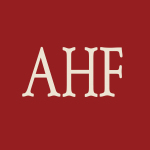As COVID-19 escalates across the nation, AHF promotes its telemedicine services with the launch of a new billboard and transit ad campaign
4 versions of a public service ad reminding HIV/AIDS patients that care is ‘Just a Call Away” are up now in 25 cities in 12 states and the District of Columbia
LOS ANGELES–(BUSINESS WIRE)–#HIVcareorg–As rates of COVID-19 escalate in the US—with a reported 60,000 hospitalized as of earlier this week and more than 100,000 new infections logged daily over the past week—AIDS Healthcare Foundation (AHF) is rolling out a new nationwide public service billboard and transit advertising campaign to remind HIV and AIDS patients that medical care is “Just a Call Away” and can be arranged through telemedicine appointments by AHF via its www.HIVcare.org website.


The goal is to help AHF’s patients—as well as to encourage other HIV or AIDS patients who may be out of care—to embrace and maintain their health and wellbeing during the coronavirus pandemic with care provided by a medical provider via telemedicine. Since March, after COVID-19 reached its first crescendo, AHF has been providing patients care via telemedicine. Telemedicine reduces the number of times patients have to actually physically go to a clinic facility—most often, if they need any blood testing. However, with patients who are already in care and successfully on antiretroviral treatment (ART), blood tests are routinely only taken from a patient two or three times a year.
“Like many in the medical field during this pandemic, we’ve found that telemedicine is an increasingly important tool for the successful care and treatment of our patients,” said Michael Wohlfeiler, MD, JD, Chief Medical Officer for AHF. “Telemedicine allows patients the convenience of continuity of care for management of their disease. And as a very basic form of social distancing—with patients remaining in their homes or apartments—telemedicine also is a critical means to reduce possible infection with COVID-19, another viral infection that has wreaked such humanitarian and economic devastation across the country and around the globe. We urge all our patients, as well as those who may have fallen out of care, to reach out and find out that we are ‘Just a Call Away’.”
Since the beginning of the pandemic, COVID-19 has infected 59.1 million people globally and claimed over 1.3 million lives. The devastating effects of the pandemic on all aspects of human activity cannot be understated. The impact of the virus on public health, the global economy, politics and civic institutions will likely be felt for generations. Amid this crisis, the possibility of an effective vaccine for COVID-19 holds a hopeful promise for a gradual end to the pandemic. However, until that time, our best course of action is to deploy simple, yet effective measures like mask use and social distancing to prevent new infections.
Over the past few weeks (from late October to early November) four different versions of “Just a Call Away” billboards, bulletins, bus bench ads, interior cards and/or transit ads have posted in 25 cities in 12 states and the District of Columbia.
“Just a Call Away” public service messages are up now in California (Los Angeles, San Francisco and Oakland), Florida (Ft. Lauderdale, Homestead, Orlando, Pensacola and St. Petersburg), Georgia (Atlanta), Illinois (Chicago), Louisiana (Baton Rouge), Maryland (Baltimore), Mississippi (Jackson), Ohio (Cleveland and Columbus), Pennsylvania (Philadelphia), Texas (Dallas and Houston), Washington State (Seattle) and the District of Columbia.
The artwork for AHF’s “Just a Call Away” public service message features an image of a hand holding up a phone with an image of two people on the phone screen—one, a medical provider, the other, a patient. A headline reads “HIVCare.org” with a sub-headline reminding viewers that care is ‘Just a Call Away.” The four different versions of the campaign differ in that they feature different medical providers and with one image, a patient holding up a pill bottle—underscoring the crucial role medication plays in the care of HIV and AIDS patients.
“We want to strongly encourage both our own AHF patients as well as other HIV or AIDS patients who may have fallen out of care to seriously consider exploring telemedicine as an efficient, social distanced way to receive their medical care,” added Michael Weinstein, President of AHF.
AIDS Healthcare Foundation (AHF), the largest global AIDS organization, currently provides medical care and/or services to over 1.4 million individuals in 45 countries worldwide in the U.S., Africa, Latin America/Caribbean, the Asia/Pacific Region and Eastern Europe. To learn more about AHF, please visit our website: www.aidshealth.org, find us on Facebook: www.facebook.com/aidshealth and follow us: @aidshealthcare
Contacts
LOS ANGELES:
Ged Kenslea, Senior Director, Communications, AHF
+1.323.791.5526 (cell) gedk@aidshealth.org
WASHINGTON, DC:
John Hassell, National Director of Advocacy, AHF
+1.202.774.4854 (cell) John.hassell@aidshealth.org
ATLANTA:
Imara Canady, National Director, Communications & Community Engagement
+1.954.952.0258 (cell) imara.canady@aidshealth.org




